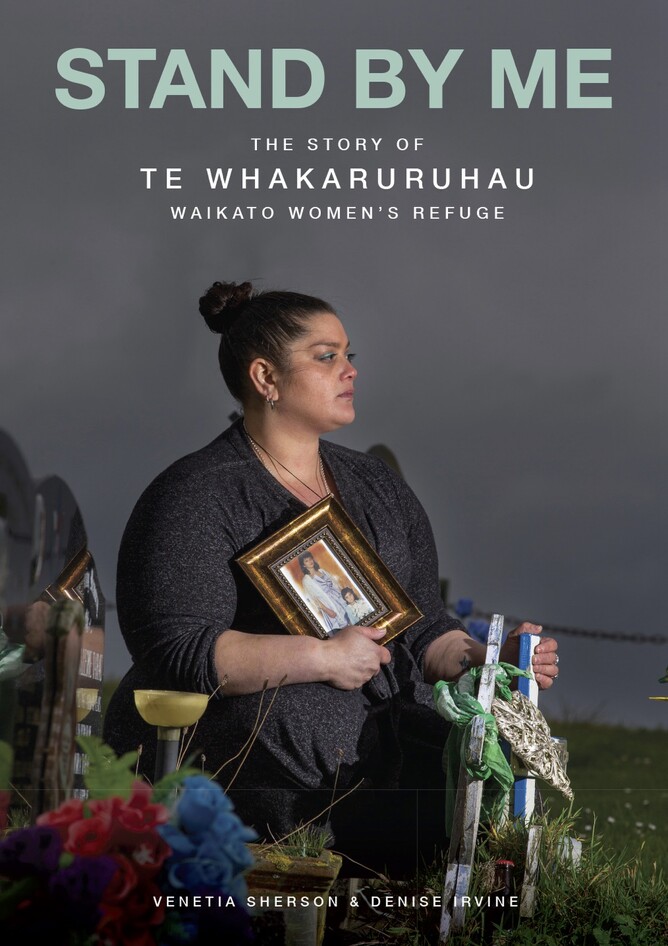The hotline rings at 3am on Sunday. A woman is crying. “I need help,” is all she says before the line goes dead.
It rings again. In the background there are sounds of fists pummelling flesh, an angry voice and screams. “Who are you calling bitch?”
“Where are you?” I ask. It’s the most important question. An address means we have somewhere to go, or somewhere to direct the cops. The next question is, “Are you safe?”
“No”, she says, and the phone goes dead again.
On the third call, she says he’s passed out on the couch. “Can you talk now?” I ask. “Are you hurt?” The answer must be able to be answered with a simple ‘yes’ or ‘no’. The easiest questions to answer and ones that give no clue as to who she has called. “Can we come to get you?” If he is in the same room, we can’t go in. “Can you get out of the house?”
“Yes,” she whispers.
“Listen,” I say. “Don’t worry about packing any gear. Just get out. We’ll be at the end of the driveway. We’re coming for you.”
They are the words of Marion Shaw who has worked on the frontline at Waikato Women’s Refuge for more than a decade, taking calls from thousands of women pleading for help.
Marion’s inspiring story is one of many in Stand By Me, The Story of Te Whakaruruhau Waikato Women’s Refuge, which shares the history and accounts of Waikato Women’s Refuge’s extraordinary work over 30 years to give women strength.
Written by senior Waikato journalists, Venetia Sherson and Denise Irvine, Stand By Me has enabled the refuge to share their important message of providing unconditional kindness and non-judgemental support.
Te Whakaruruhau chief executive Ruahine (Roni) Albert says as the problem of domestic violence in New Zealand has grown, so has Te Whakaruruhau, which is now the largest women’s refuge in New Zealand.
“Today, we have a team of 45 staff - many with their own personal stories of domestic violence – who work tirelessly to support around 3,500 beaten and abused women and children in the Waikato each year,” says Roni.
Domestic violence statistics in Aotearoa New Zealand continue to be alarming, with an average of 279 police callouts in New Zealand each day for family violence.
Aotearoa New Zealand has one of the highest reported rates of family and sexual violence in the developed world where 33% of women will experience some form of abuse in their relationship, whether it is physical, psychological, emotional, sexual or financial abuse. Yet 80% of incidents are not reported.
“Stand By Me has given us a chance to celebrate and honour all of the women who have come out of abusive relationships over the past 32 years. It takes a lot of courage and bravery to do that and many women struggled,” she says.
“The stories in Stand By Me will empower other women who have been – or are being – abused by their partners,” she says.
The refuge has developed into a unique multimillion-dollar organisation transforming the lives of many women, enabling them to follow their dreams. But as Roni will explain, there have been many battles along the way through.
In 1986, before a safe house was secured, Roni and Ariana Simpson would take women and their children in at their one-bedroom flat. They had no experience running a refuge, but wanted to make women feel comfortable and safe.
In 1987, Te Whakaruruhau opened its five-bedroom safe house in Hamilton East, the first Maori women’s refuge in Aotearoa. Running under the umbrella of the National Collective of Independent Women’s Refuges, Ariana became the sole paid employee and Roni voluntarily drove the van and maintained the gardens. Initial government funding was $60,000.
Ariana and Roni provided 24-hour frontline callouts, sometimes dozens a week, and they were often the first on the scene, witnessing bloodied faces, smashed ribs and cowering children. If the perpetrator was still at the house, they learnt how to keep themselves safe. Roni would take her bull mastiff for security.
Roni and Ariana’s vision was to expand the safehouse from bricks and mortar into a centre providing knowledge and support, so women so could forge their own way in the world. They climbed many hurdles.
“Back then the systems were difficult and it was hard to get traction. We had to be creative and sometimes had to go to extremes to protect the woman and her children. If it wasn’t for the staff – past and present – and the volunteers, we wouldn’t be here today,” she says.
Two decades later, in 2006, Te Whakaruruhau was given $1.2 million by Te Puni Kokiri to expand the organisation. Finally, more staff were employed at safe houses and fleet vehicles were purchased.
Today, Te Whakaruruhau, which means ‘shelter from the wind’, has six safe houses and Waikato Women’s Refuge is called to national meetings to develop strategies for family violence.
“That’s huge from where we’ve come from,” says Roni.
“We always knew there was something unique about Te Whakaruruhau, but we had to cut through a lot of barriers. We listened to the families to find out what they needed and whatever we needed to do, we got on and did it.
“In the future, we want to partner and collaborate with everyone – businesses, the workforce, this community – we thought we weren’t going to survive five years ago, but the community and business connections have been amazing to help lift us and expand our organisation,” she says.
“I want to sincerely thank all of the people who have supported us in the past. The title of the book ‘Stand By Me’, really sums up what has been achieved and how we move forward.”
Stand By Me can be purchased online at www.waikatowomensrefuge.co.nz/stand-by-me.
